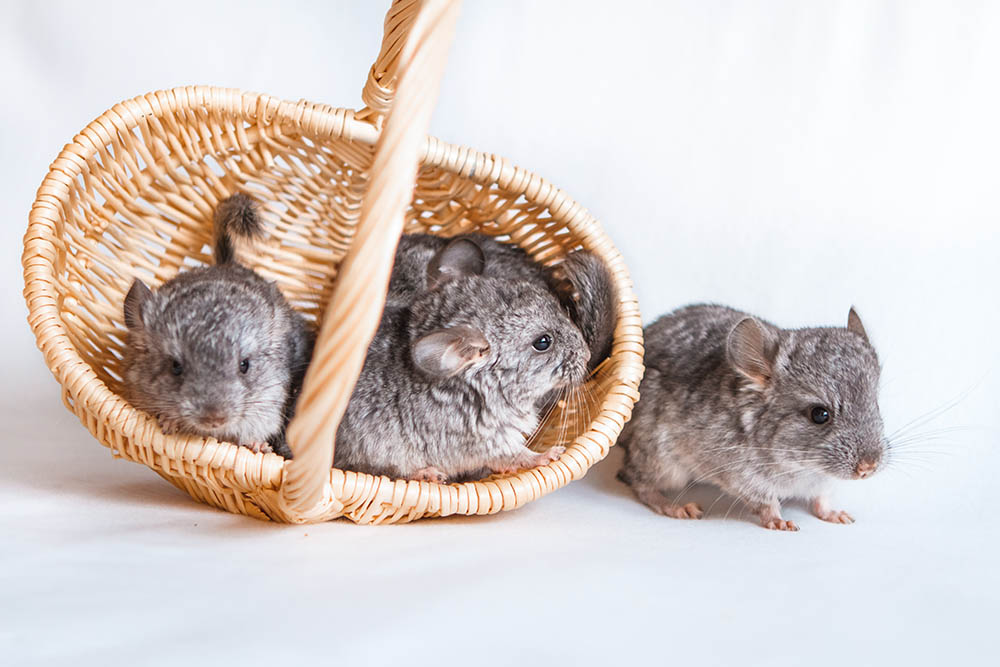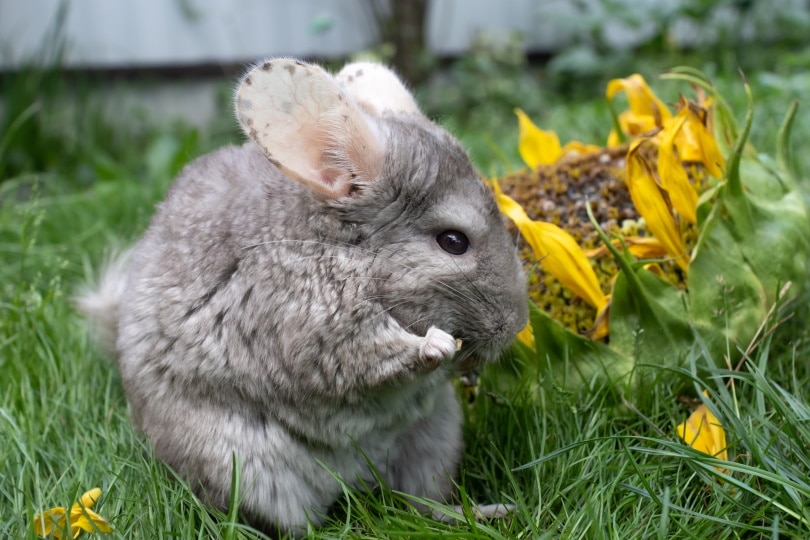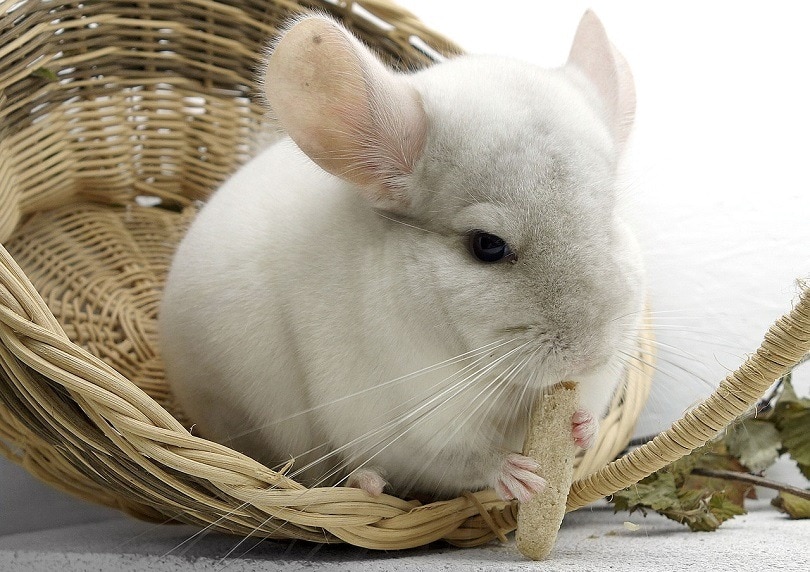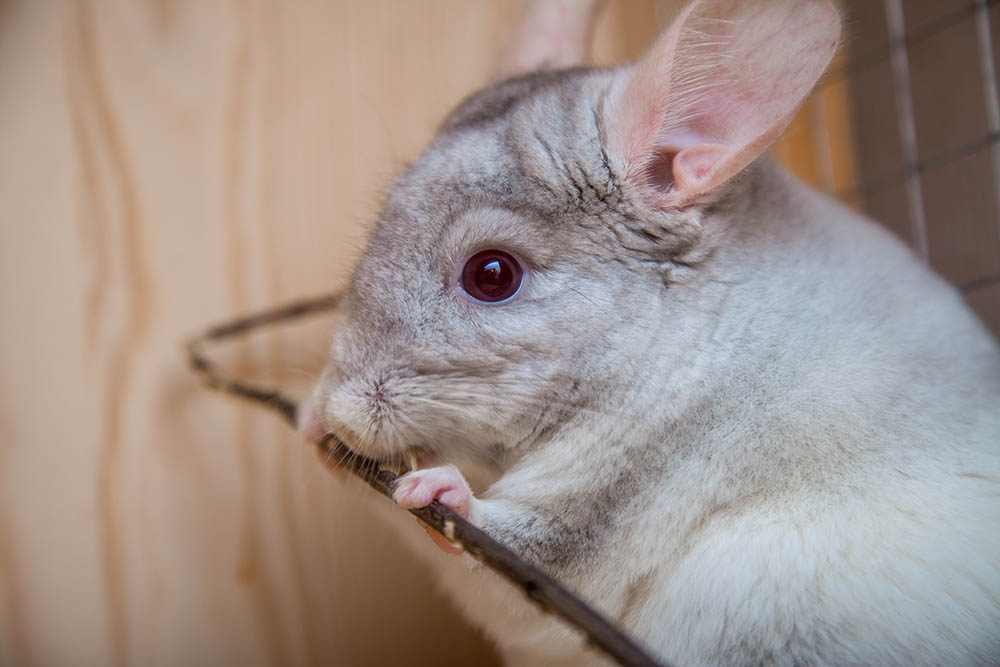
Pondering whether to welcome a chinchilla into your family? These charming creatures might seem like they can make great pets. They are friendly, intelligent, and incredibly adorable. However, understanding their specific needs is a lot more complicated than, say, a dog’s, and we don’t advise keeping exotic animals as pets without careful consideration prior to adopting them.
Getting a chinchilla means more than just bringing home a cute, cuddly companion. It’s entering a commitment that requires dedication, patience, and a thorough understanding of their unique needs. Chinchillas are not your standard pets; they come with an interesting blend of behaviors and habits that set them apart. Let’s dive a bit deeper into this down below.
Factors Involved in Owning a Chinchilla
Personality
The personality of a chinchilla might be what initially draws you to them. Chinchillas are dynamic creatures with a knack for exploration. Their playful nature and curiosity will keep you entertained. Every chinchilla has a unique personality, which makes the experience of having them around all the more special. As such, their quirks and characteristics offer a unique experience to every pet owner, and not always for the best.

Lifestyle
Though technically crepuscular and not nocturnal, pet chinchillas are most active at night. Chinchillas are night owls, meaning they’re active during the night and sleep throughout the day. This lifestyle may suit some households, but it is a deal-breaker for most. Having a chinchilla means adapting to their rhythm and respecting their sleep pattern—and most people aren’t willing to do that.
It’s essential to remember that when your day begins, your chinchilla might be winding down. This nocturnal lifestyle plays a significant role in their overall behavior and health. Chinchillas are most active during the night, requiring a peaceful environment during the day for their rest.
Being crepuscular isn’t out of the norm for most rodents. As they have predators that are active during both the day and night, they seem to instinctively be most active in the transition period between these two times.
Habitat
Chinchillas originate from the cool, dry mountains of South America, meaning they’re not fans of heat or humidity. Your house’s temperature needs to be regulated for your chinchilla’s comfort. They also require a spacious and engaging cage filled with toys, platforms, and tunnels to meet their physical needs.
A crucial part of chinchilla care is providing an environment that mimics their natural habitat as closely as possible. They need cool, dry surroundings and a habitat rich in opportunities for play and exploration. The layout and size of the cage, the type of bedding used, and even the room’s temperature can significantly affect your chinchilla’s comfort and health.
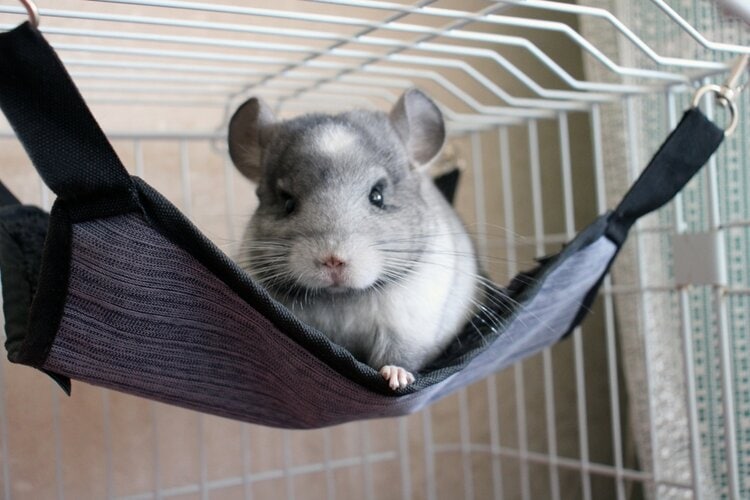
Food
Feeding a chinchilla isn’t quite as straightforward as dropping some food in a bowl. These little creatures have specific dietary needs that play a vital role in their overall health and longevity.
The mainstay of a chinchilla’s diet should be good-quality hay. Timothy hay is an excellent choice as it provides the necessary fiber to aid their digestion and also helps grind down their constantly growing teeth. It’s essential that your chinchilla has access to fresh hay at all times.
Chinchilla pellets are also considered a crucial part of their diet. These specially formulated pellets provide a balance of nutrients that chinchillas need. However, the costs of their food can quickly add up. While pellets are important, they should complement the hay, not replace it.
Grooming
Grooming a chinchilla is a unique and challenging experience. Their plush fur is the densest among all land mammals on earth and therefore requires very special care. Dust baths are a key part of their hygiene routine, helping them maintain their fluffy coats. Their dense fur prevents them from traditional water baths, meaning you’d have to learn a whole new process of grooming your pet.
Social Interaction
Chinchillas thrive on social interaction, but building a bond with a chinchilla requires a lot of time and patience to the point that you might not be able to provide it all, especially since they’re usually more active at night.
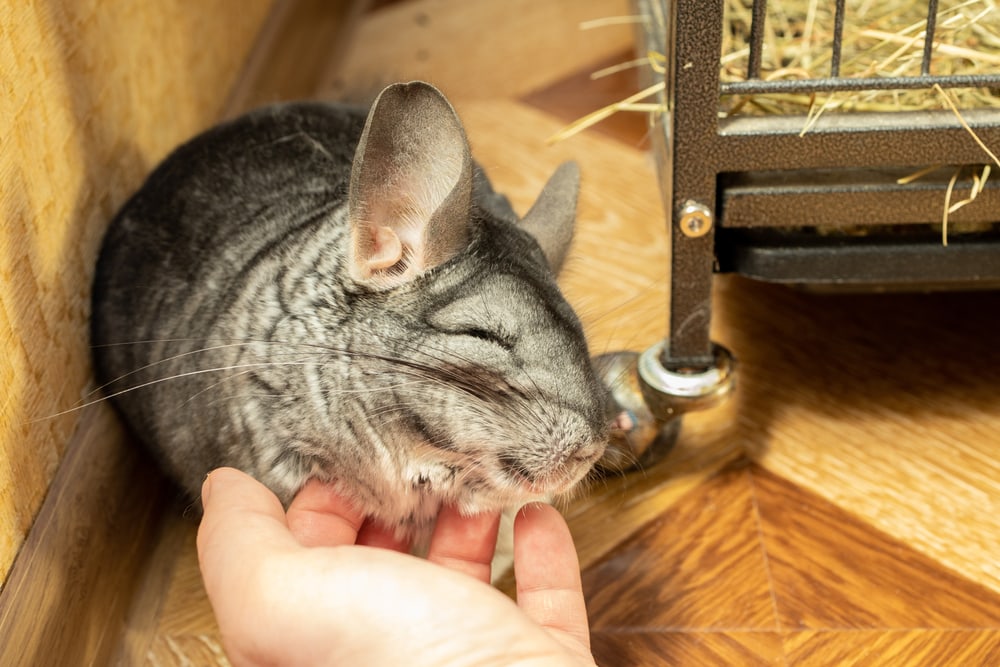
Longevity
One crucial factor to consider about having a chinchilla is the amount of time you have to spend with them. When you stack up chinchillas against other pint-sized pets, they outlive most by a considerable margin. Your furry friend can stick around for a good 10 to 15 years, and some even make it to their 20s. This impressive lifespan allows your chinchilla to become a longtime companion, but that also means you have to make a long commitment to keeping this exotic pet healthy, which isn’t the best choice for everyone.
Conclusion: Are Chinchillas Good Pets?
To wrap things up, chinchillas can potentially make good pets, given you understand their needs and are ready and responsible enough to meet them. But keep in mind, they aren’t a breezy, carefree choice of pet. They need a dedicated owner who is committed to looking after their well-being. Truthfully, these animals are better left in the wild, but that doesn’t necessarily mean they can’t be a good companion.
Featured Image Credit: Luniaka Maria, Shutterstock


